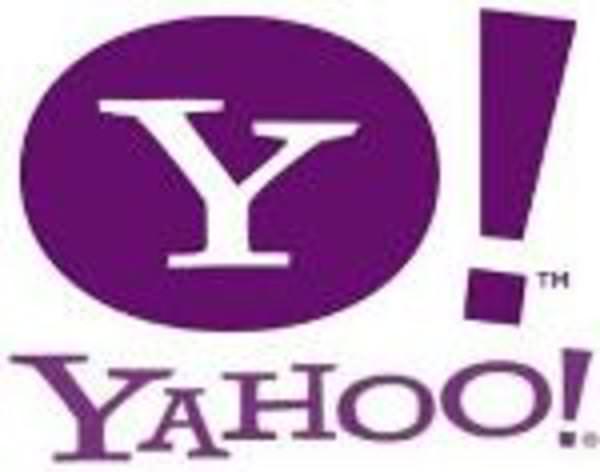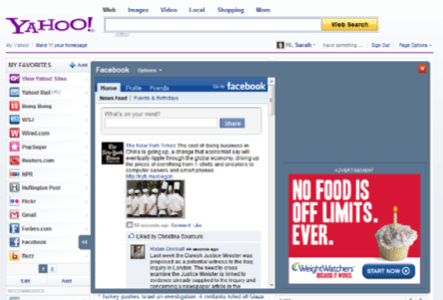Yahoo has announced a series of changes set to roll out this week that integrate Facebook’s social networking service into various Yahoo properties, including Yahoo Mail and its homepage. Also included in the announcement is news of a refresh for Yahoo Profiles. Originally launched in 2008, the new profiles will be accessible at pulse.yahoo.com (whenever Yahoo gets around to making that URL live, that is.)

With all these changes, we wonder: Did Yahoo finally pick a new direction? And is it “social network aggregation?”
Yahoo’s New Direction?
According to the company press release, Yahoo’s senior director of Social Platforms and Yahoo! Developer Network, Cody Simms, is quoted as saying Yahoo is “uniquely positioned to provide people with all of the mainstream methods of content discovery – social, search, communications, and editorial,” which sounds like more of a mission statement than we’ve heard from the company in years.
One-time Web darlings from a bygone era of homepage portals, Yahoo has floundered over the years, lacking direction and a clear course. Even when directly asked by tech blogger Michael Arrington at the recent TechCrunch Disrupt conference, “what is Yahoo?”, the stated answer from CEO Carol Bartz was rather wishy-washy: “Yahoo is a great company,” she said. “Very strong in content for its users.”
Right, so what is it again?
But with the new Facebook integration, it looks like Yahoo might now be starting to figure that out. It’s an aggregator of not just news, but social networks too.
Yahoo: Mainstream Users’ RSS Reader, Now a Social Network Aggregator Too
The Yahoo homepage already functions as a somewhat decent RSS reader for those mainstream users who don’t know what RSS is – you “add favorite websites” to customize the homepage’s sidebar, from a list of choices that includes Yahoo properties, mainstream news publications like NPR and WSJ, top blogs like Huffington Post and Boing Boing and a couple social networks too.

Facebook now joins Yahoo’s own “Buzz” network (a Digg clone for voting up news stories), Twitter and Flickr, the latter a Yahoo-owned property, in the list of social sites that can be added as “favorites” to the homepage.
With the new Facebook integration, you can actually read your News Feed from Yahoo.com via the “Facebook Quickview” feature. Once you give the site permission (similar to how Facebook applications work), Facebook launches as a mini-window on Yahoo’s homepage…just like all the other news and social sources already do today.
Facebook: It’s Everywhere on Yahoo
But Yahoo’s Facebook integration doesn’t stop there – it’s spread out across the network’s sites, including Yahoo! News, Yahoo! Sports, Flickr, and Yahoo’s entertainment sites like omg!, Yahoo! TV, and Yahoo! Movies. And the company promises there’s more to come.
From any of these sources, those creating and sharing content can link those activities to their Facebook profiles, allowing their actions on Yahoo to post to their Facebook Wall and News Feed.
Because the social aggregation is so extensive, Yahoo users are actually being given a centralized dashboard to manage their external social networks: Yahoo! Pulse. Available (soon, we hope) at pulse.yahoo.com, the site will replace Yahoo! Profiles as a place to link, manage and update social accounts and their privacy settings.
Can Facebook Save Yahoo?
As far as picking a direction, going “all in” on Facebook isn’t that bad of a choice for the flailing company, which was recently described by the New York Times as “a dog,” referring to its poor stock market showing.
Creating a social and news dashboard application out of Yahoo.com is a decent choice for the company – after all, that’s what Google is doing with Buzz and let’s not forget that social aggregator FriendFeed did OK before being bought up by Facebook.
That said, one has to wonder: is a Facebook-heavy Yahoo enough to save the company?










